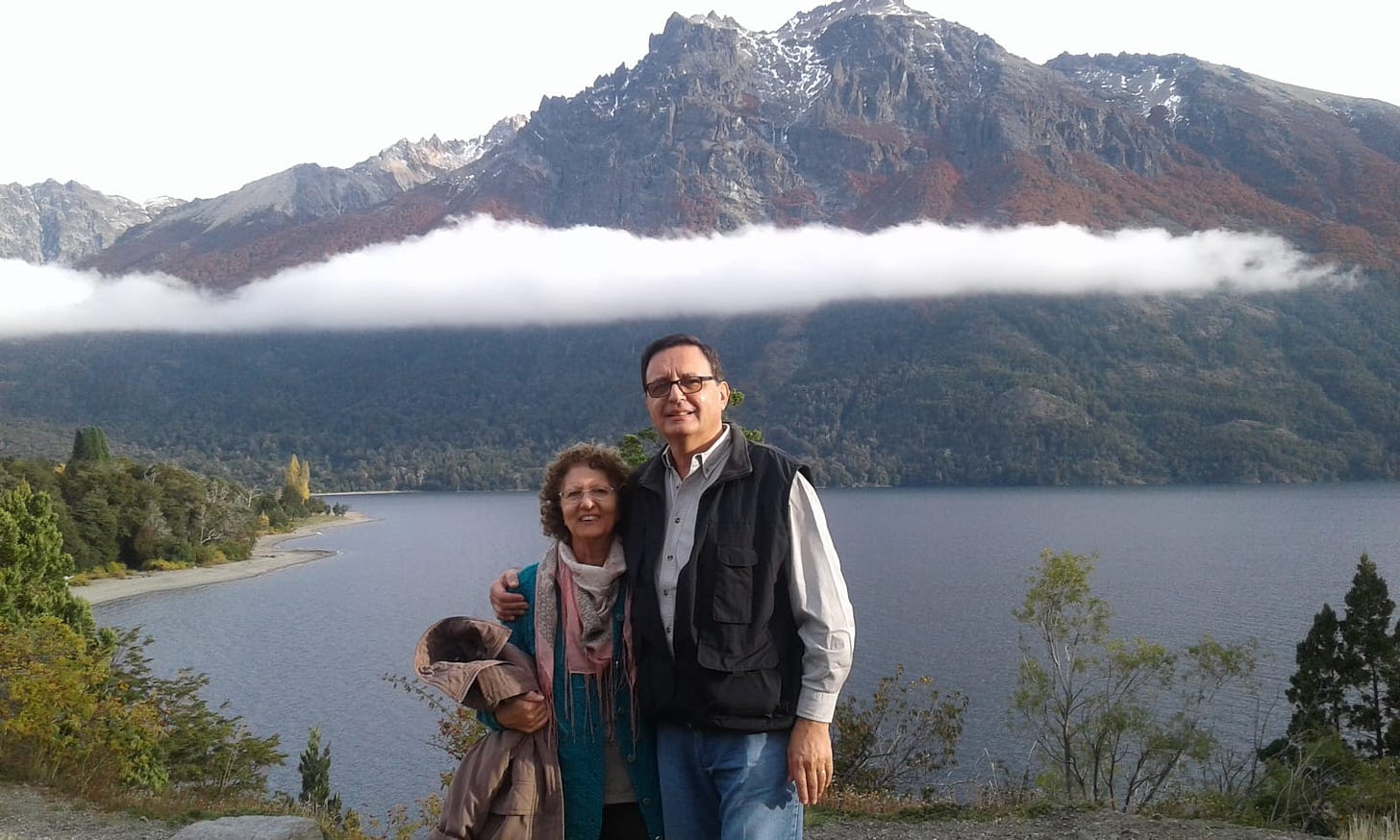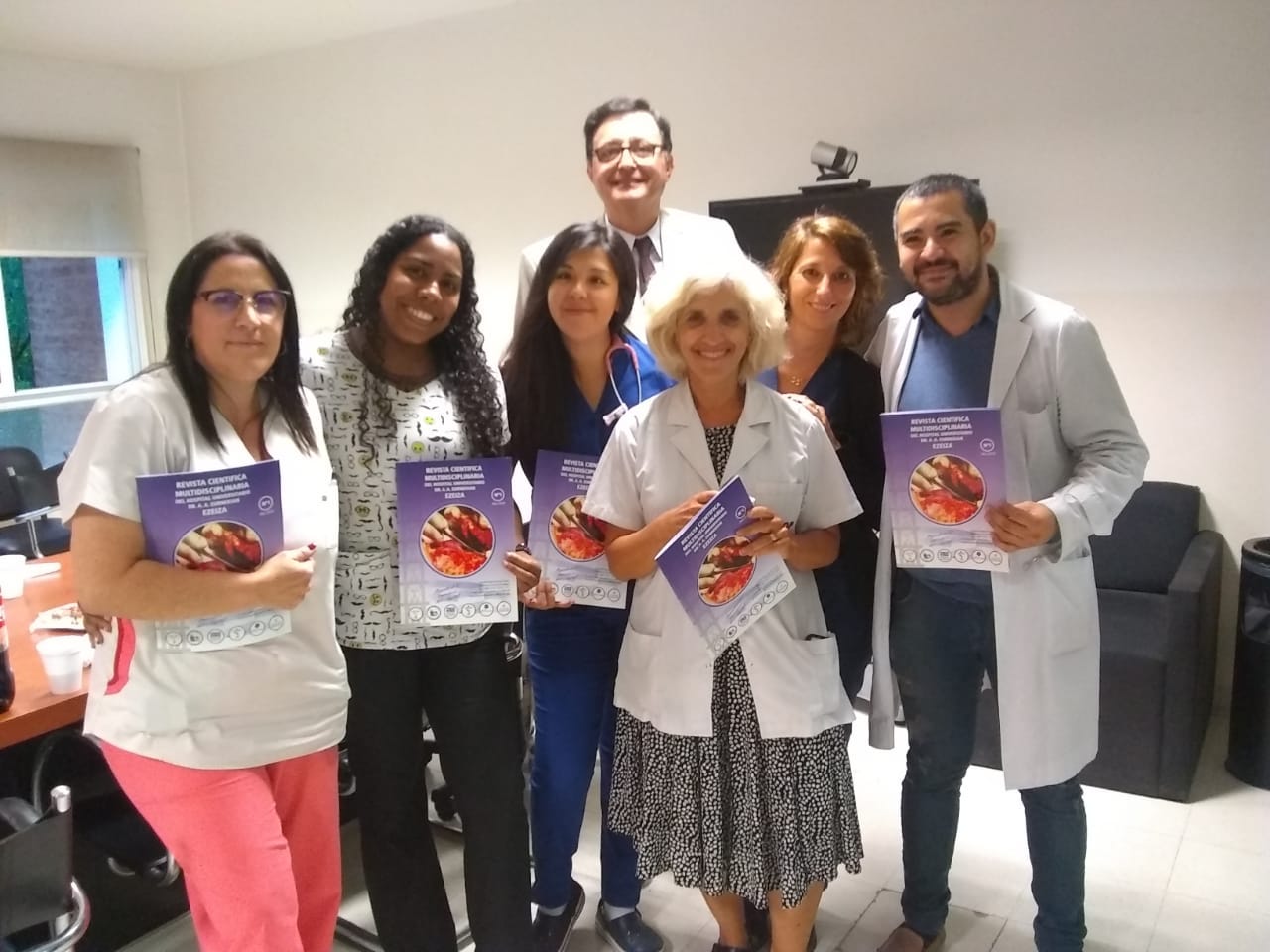A Lifeline from Buenos Aires
Dr. Hector Carvallo's discovery that ivermectin prevents COVID-19 is saving thousands of lives and helping open regions and cities of the world to normal life. So why is he constantly attacked?

The novel coronavirus COVID-19 was already looking dangerous in February of 2020. More than 75,000 cases had been reported in China, the death toll was approaching 3,000, and virologists around the world were warning of an epidemic—with no medicine to fight it.
Then, late in the month, Mirta Carvallo, M.D. a retired pediatric dermatologist in Buenos Aires, Argentina, heard a rumor. “Something’s going on with ivermectin in Australia,” she told her husband, Hector. Researchers at Monash University had reportedly neutralized the Covid virus in laboratory tests, she said.
A retired endocrinologist, professor of internal medicine, and former director of one of the city’s largest hospitals, Hector Carvallo, then 63, was instantly intrigued. An anti-parasitic medicine, ivermectin has saved millions in the southern hemisphere from the plague of onchocerciasis, or river blindness.
He and Mirta had prescribed it countless times for dermatologic ailments like scabies and rosacea, and he calls it “one of the safest medicines I’ve ever used.” Acclaimed as one of the most important medicines of the 20th century, ivermectin won its discoverers the Nobel Prize in 2015.
Within weeks—long before the Australians even reported their findings—Carvallo and a colleague would conduct the first human trials of ivermectin for prevention in the fight against Covid.
“I am not ashamed to say I cried when we got the results,” Carvallo recalls in a recent Zoom interview.
Alas, months later, “I cried again,” Carvallo says. That’s when medical authorities in Argentina—and soon others around the world—began their ongoing effort to suppress public knowledge of ivermectin’s efficacy and safety, and to question Carvallo’s results and attack his reputation.
It’s a story the world, and history, needs to know.

Soft-spoken and gracious, Carvallo speaks impeccable English, some of it learned watching the 1960s American TV medical dramas Dr. Kildare and Ben Casey that inspired him, as a small boy, to become a doctor.
Days after Mirta told him about the rumors out of Australia, he explains, he sat down with Roberto Hirsch, M.D., one of Argentina’s leading experts on infectious diseases, to mull ivermectin’s possibilities.
While little known in North America and Europe except as a veterinary de-worming medicine, ivermectin was known to inhibit RNA viruses in vitro, including dengue, Zika and yellow fever—apparently by blocking the virus’ ability to transport from a cell’s watery cytoplasm to its nucleus. But what happens in a petri dish doesn’t always happen in the human body. Could ivermectin be as potent against Covid, they wondered, as it was against river blindness?
And so, in early March—three months before the Australians would report in the journal Antiviral Research that ivermectin had effected a 5,000-fold reduction of Covid in vitro—Carvallo and Hirsch wrote to the Journal of the American Medical Association about its exciting possibilities.
Noting ivermectin’s “virucidal properties,” their letter theorized that ivermectin could be a safe, potent, widely available and cheap prophylaxis against Covid, urgently in need of swift investigation. They further hypothesized that it could be efficacious against Covid infections in combination with a blood thinner to reduce dangerous hyper-coagulation, and a corticosteroid to reduce the hyper-inflammatory immune response that was turning Covid infections fatal in so many patients.
“But the editor of JAMA said he was not interested. He gave us no good reason,” Carvallo recalls with a shrug. “I was surprised. I wrote to say, ‘At least take it as a possibility,’ but we never heard back. So, we decided to form our own trials. We would replicate what the Australians had done in vitro, but we would do it in vivo.”
Instead of testing ivermectin against Covid in a glass dish, they would test it in the human body.
First, they approached the ethics committee of Eurnekian Hospital, where they worked, one of Buenos Aires’ largest. Their proposal: to administer weekly oral doses of ivermectin to about 100 of the hospital’s health care workers regularly exposed to Covid patients. (The doses would be about three times higher than is typically prescribed as an anti-parasitic, but there was ample evidence these were safe levels, Carvallo says.) One hundred other health care workers who chose not to take ivermectin would serve as the control. All participants would continue to wear masks and wash hands.
A lengthy randomized controlled double-blind study with placebos—the putative “gold standard” of medicine trials—would be unethical, Carvallo and Hirsh agreed. “If I had to post my hypothesis atop a pile of corpses, that’s criminal,” says Carvallo. Instead, theirs would be another classic form of medical research: An “observational” trial: no one would receive placebos, and the trial’s administrators would know who got the ivermectin and who did not.
The hospital’s administrators were “elated” by the proposal, says Carvallo, and Buenos Aires’ health office swiftly approved its protocols. A county judge signed off, too.

Unfunded, informal, and using donated medicine, the trial began in late April, with 131 subjects taking ivermectin and 98 not. Each person in the test group was given 8 mg of ivermectin per hundred pounds of body weight once weekly, along with several daily nasal spritzes of carrageenan, shown effective in reducing intake of rhinoviruses and other airborne pathogens.
A month later, Carvallo and Hirsch could scarcely believe the results. “Among the 98 who did not take ivermectin, eleven had contracted the virus,” he recalls in our interview. “Of the 131 [who received ivermectin], nobody had.
“Word spread quickly through the hospital, and the union representing our health care workers demanded the prophylaxis be given to everyone [on staff] who wanted it.” With so large a volunteer pool suddenly available, he and Hirsch undertook a second, expanded phase of the trial.
This time they recruited 966 more health care workers at Eurnekian and three other Argentine hospitals while continuing to treat the original 229 subjects. Beginning June 1 and continuing to August 1, they received weekly doses of the ivermectin/carrageenan protocol, while the 407 in the control did not. All continued to observe PPE guidelines.
At the trial’s close in August (ended because they’d run out of free medicines), 237 of the 407 participants in the control group, or 58.2 percent, were infected. Among the 788 patients treated with the ivermectin/carrageenan protocol, nose swabs and assessments of symptoms showed no evidence of Covid infection. “None,” says Carvallo.
By then they had launched an observational treatment trial of patients already infected with Covid, modeled on the protocol they had proposed months earlier to JAMA. Starting in June they enrolled 135 outpatients presenting mild Covid symptoms, and 32 inpatients with moderate to severe symptoms.
All were given ivermectin weekly, based on body weight and severity of symptoms, typically oral drops in doses ranging between 24 and 48 milligrams. All hospitalized participants received 4 mg of the corticosteroid dexamethasone by injection, and aspirin or a blood thinner depending on severity of symptoms. The most seriously ill were on ventilators.
After four weeks, none of the 135 outpatients required hospitalization, and one inpatient had died. That was an 82-year-old man, with severe co-morbidities, who had been admitted at the hospital in a desperate condition.
The 3.2 percent death rate for those on the IDEA protocol, as they called it, was one-seventh the then-prevailing 23.5 percent death rate for hospitalized Covid patients in Argentina, they later reported in the Journal of Clinical Trials.

In July, Carvallo and Hirsch submitted their preliminary findings to Argentina’s Ministry of Health. The rest they sent in August.
“A few days later I received a call at home from the health minister’s secretary,” remembers Carvallo, shaking his head. “He said I was not allowed to keep investigating ivermectin, or it would put my job in jeopardy. I was baffled. I said, ‘Why?’ and he would give me no answer.” The usually gracious Carvallo had harsh words for the health minister before hanging up.
“And that’s when I cried again, from frustration. I’m not ashamed to say I cried, because it’s true.”
A year and a half later, with the Delta variant on the rise—and reports of an even more virulent strain circulating in the Amazon rain forest—ivermectin still struggles for official recognition as an anti-Covid agent despite the large body of research in its favor.
In May, 2021, for example, The Journal of Antibiotics published a metanalysis of ivermectin showing that “100 percent of 36 early treatment and prophylaxis studies report positive effects” against Covid, with 26 of those trials reporting “statistically significant improvements.”
Yet three months later, in August, the U.S. Food and Drug Administration was still pounding the same drum it first pounded in June, 2020, when the Australian researchers published their findings.
“Taking a drug meant for horses and cattle to prevent or treat COVID-19 is dangerous and could be fatal,” the FDA warned in August. Carvallo calls the mockery and disinformation “very frustrating.” (But in this vacuum of official censorship of the drug, he still doesn’t want people self-prescribing ivermectin—not because it’s dangerous, but because they might take too low a dose or not at the proper frequency.)
Lately, the fight has become even more pointed. On September 2, BuzzFeed News published a long, critical examination of Carvallo’s ivermectin studies which, it said, “raised questions about how the study’s data was collected and analyzed,” they say. (You can read the BuzzFeed story here.) Carvallo disputes the story as medically uninformed, saying his was a legitimate observational trial.
“It’s not a matter of ignorance,” Carvallo insists of the backlash against ivermectin. “The NIH, the CDC, the FDA—they’ve all read the studies. They just don’t care, because there’s a double standard. The more expensive a compound is, the less quantity of evidence is required to get it approved. “But when a compound is cheap and available,” he says, “that’s another matter.”
He told BuzzFeed it’s only a matter of time before ivermectin is widely approved to fight Covid. “All truth passes through three phases,” he told them. “First it is ridiculed, then it is violently opposed, then it is accepted as self-evident. We are in phase two now.”
In two new stories on RESCUE tomorrow, “Hector vs. The Journalists,” you can read Carvallo’s full response to the BuzzFeed investigation and Michael Capuzzo’s report on the media mishandling of Carvallo’s study.




He’s got to explain why he won’t release his data set. Not detractors, but staunch advocates of his work are asking for that legitimizing move on his part. It will only help his case to be transparent.
Carvallo is one hero!
Viva Carvallo, viva Hirsch, viva Argentina!